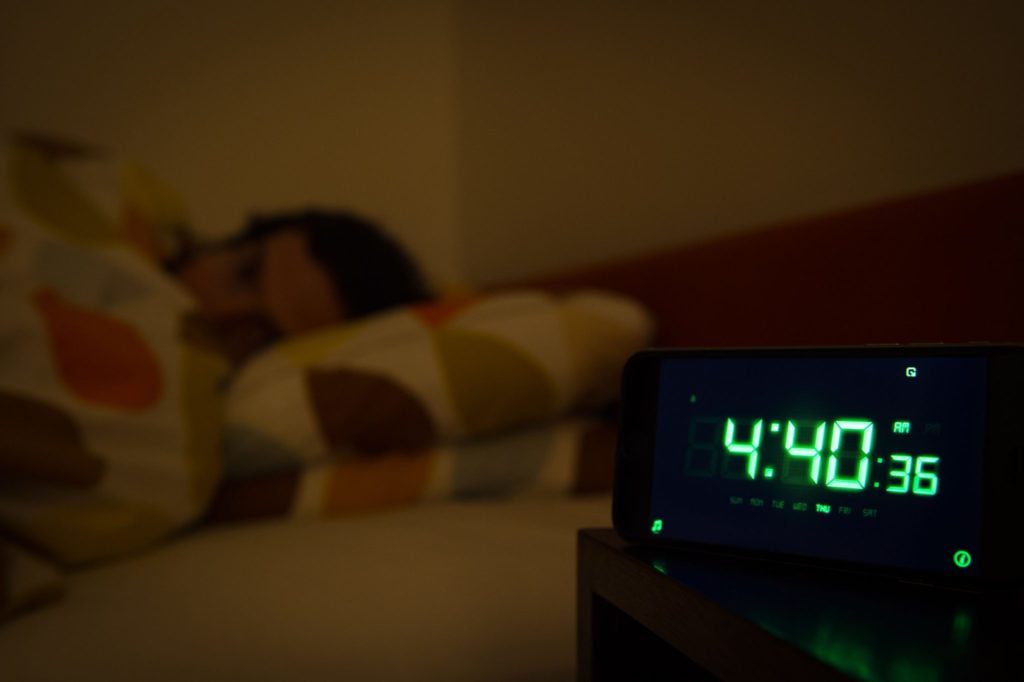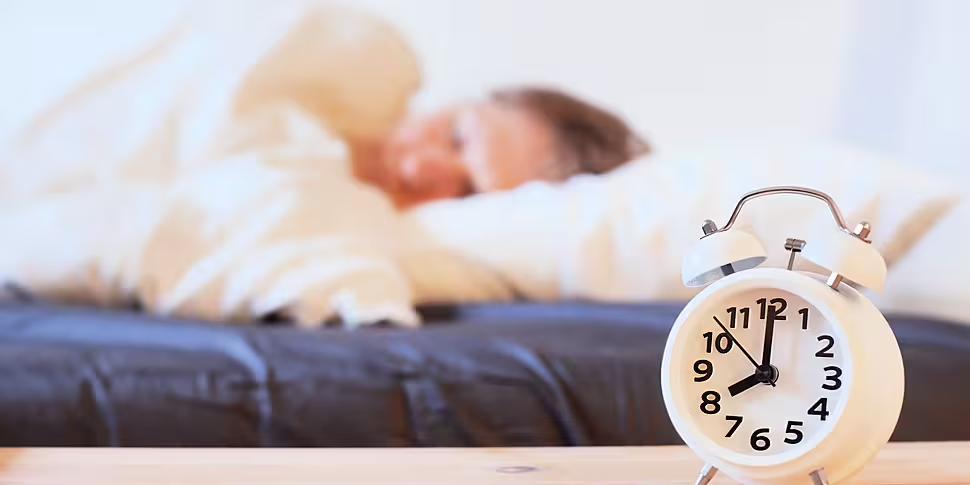Women need more sleep than men but the exact amount and why is up for debate.
Studies have shown women fall asleep faster and spend more time in deep sleep, suggesting a greater need for sleep.
Insomnia, depression and hormone changes are common sleep disruptors for women.
Sleep expert Tom Coleman told Lunchtime Live there are a number of reasons women require more rest.
"There is some debate about this; one piece of research indicated that women use more of their brains," he said.
"We do know that women also spend more time in deep sleep than men.
"Deep sleep and light sleep are equally important - a lot of the physical restorations and repair are happening in deep sleep and a lot of the psychological repair is happening in light sleep."
 File photo of a person in bed looking at an alarm clock in April 2021. Picture by: PA Images / Alamy
File photo of a person in bed looking at an alarm clock in April 2021. Picture by: PA Images / AlamyMr Coleman said exactly how much more sleep women need is unclear.
"I've seen variants from 11 minutes more to 20 minutes more [than men]," he said.
"It could be in relation to how their circadian clock, how their body clock, operates.
"That can run fast or it can run slow, so we need external cues to align that."
'Women get tired earlier'
Mr Coleman said ideally people would get over seven hours sleep a night.
"A lot of women get tired earlier and the requirement is different; maybe their clocks run a bit faster and maybe they need more sleep," he said.
"We would sleep in cycles, that's why the recommendation is five cycles of 90 minutes - that would be about seven and a half hours.
"But there is that little bit of variance there, it is personal.
"That's the first thing to figure out: how many cycles per night do I need?"
The cycles mark the five different stages of sleep, with each stage leading to deeper sleep.
Unwinding
Mr Coleman said women generally handle sleep disruption better than men.
"Females are much better able to handle sleep disruption and... more females tend to be early risers and they'll fall asleep earlier," he said.
"I suppose if we look at it from a societal point of view we're designed to be in social groups so it's useful to have people with different time settings from a protective point of view."
 Woman looking at smartphone at night in bed. Image: Tero Vesalainen / Alamy
Woman looking at smartphone at night in bed. Image: Tero Vesalainen / AlamyMr Coleman said unwinding before sleep is critically important.
"We've found so many ways to stress ourselves out and wind ourselves up," he said.
"Scrolling on the phone is not unwinding, it's stimulating your brain and stimulating your nervous system - and it's highly addictive.
"I would encourage people to learn how to transition better.
"Those with the racing mind we need to give our mind some cognitive chewing gum.
"That's where maybe a podcast or relaxing sounds [can be helpful]".
Mr Coleman said people on shift work should look at "reducing the risk" as much as they can and plan their sleep.
The World Health Organisation has classified shift work as a "probable" carcinogen.









